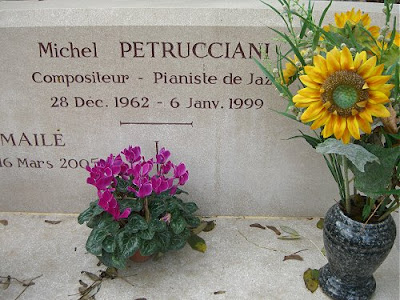Which lie did I tell?

I am acutely aware that there is a difference between art and entertainment, and it was put rather well by William Goldman, the Hollywood script writer, in a very entertaining book called Which Lie Did I Tell? What he said was this: the difference between art and entertainment is that entertainment either tells you lies or tells you comforting truisms that we all know already, and art tells you uncomfortable things that you perhaps don't want to hear, truths that you may not be comfortable to hear.Header art is by Banksy. The unlikely source of the quote below it is John Rutter. The composer was talking at The Challenge of Contemporay Music, an admirable seminar organised in 2007 by Norwich Cathedral Library. Before anyone raises the question as to where John Rutter's music sits on the entertainment to art spectrum here he is again speaking at the seminar:
I think composers are probably divided into two kinds with all sorts of shapes in between. There are explorers and there are magpies. Explorers are those who are just born to find new sound worlds, new structures, new ways of expressing what they want to say, forging new paths, looking for new directions. At the other extreme there are magpies who just gather the sounds that are in the air around them, put them in their nest and make something of them ... I do believe that I am a magpie; I suppose I never really felt the need to venture into uncharted territory.Peter Aston also contributed to the seminar. He co-founded the Norwich Festival of Contemporary Church Music in 1981, and was head of music at the University of East Anglia for twenty-five years. During the seminar he gave this reminder that writing in C major can be quite effective:
I think in the end that you have to speak with your own voice and there is a difference between being traditional and just copying what other people have done. I mean, we all see and hear quite a lot of second-hand music which, as Peter Ashton (see below) has said, is just a pale imitation of what others have done before. There is no mileage in that. I myself however always felt that it was possible to use traditional means in new ways. Schoenberg once said there's an awful lot of good music left in C major, and I thought, well, perhaps I'll try to write some of it.
The last time I was in Sacramento in California for the Bach Festival there (does he mean Carmel? - Pliable), I went into a record shop and discovered there were more CDs of John Rutter on display than of any other composer, with the exception of Bach and Mozart.A bound thirty-three page transcript of the seminar The Challenge of Contemporary Music can be purchased from Norwich Cathedral Library. John Rutter may be a self-professed musical magpie, but he has mixed with some true explorers. While in his teens he was a contemporary and good friend of John Tavener at Highgate School in London. As part of the Highgate School Choir he sung in Benjamin Britten's classic recording for Decca of the War Requiem. Which brings this path back to where it started. The image below is from a prime example of art that tells you uncomfortable things that you perhaps don't want to hear - War Requiem the movie.

Header image credit Tales from the other side. Any copyrighted material on these pages is included as "fair use", for the purpose of study, review or critical analysis only, and will be removed at the request of copyright owner(s). Report broken links, missing images and errors to - overgrownpath at hotmail dot co dot uk






Comments
http://www.overgrownpath.com/2009/02/klang-but-not-stockhausen.html